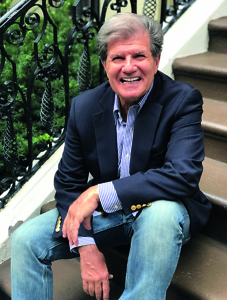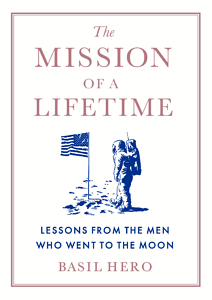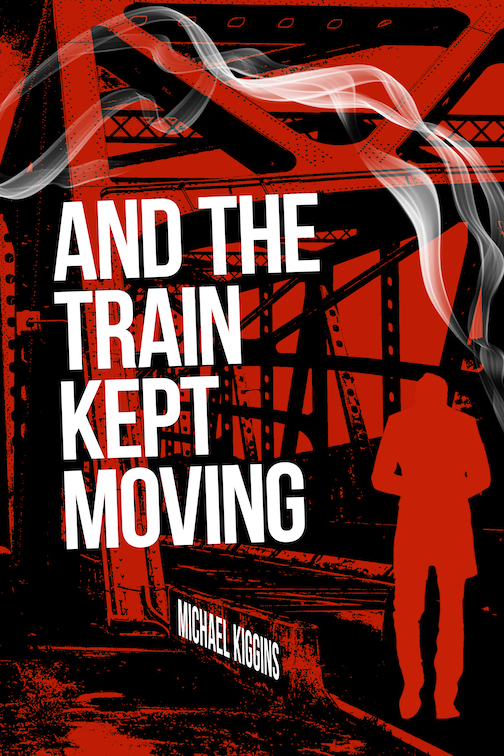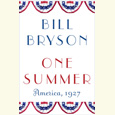In Pursuit of the Common Good
In a new nonfiction book, Basil Hero considers the character traits of the Apollo astronauts
When Neil Armstrong stepped onto the surface of the Moon in 1969, the millions watching back home on television sets believed their lives would be forever changed. In The Mission of a Lifetime: Lessons From the Men Who Went to the Moon, Basil Hero looks beyond the staggering facts of NASA’s lunar landing into the hearts of those astronauts, known collectively as the Eagles, for the qualities that centered, bonded, and sustained them.

Today, their focus and calm seem almost inhuman. A classic example of rocket-man cool is the terse, “Uh, Houston, we’ve had a problem,” from Apollo 13’s Jack Swigert. As the crews on both the spacecraft and the ground worked to bring the crippled spacecraft home, that efficient back-and-forth continued without a hitch although monitors showed the crew’s heart rates were through the roof.
To a man, astronauts possessed a critical ability to quell their fears and focus on task. Both Armstrong from Apollo 11 and Alan Bean from Apollo 12 later admitted that they had felt pure panic when they looked down onto the Sea of Tranquility and saw nothing but boulders. There was no place to land. Bean, who called himself “one of the more fearful astronauts,” told Hero: “I can’t perform my job if I’m not calm, so instead of looking out the window, I looked down into the cockpit and focused on the computer readouts, our fuel consumption, and calling out our rate of descent to the lunar surface while Pete [Conrad] fired Intrepid’s thrusters to find a clear landing site.” They nailed a dead-stick landing in a clear space among the boulders.
 NASA picked its astronauts carefully. They tended to be “farmboy nerds from state schools” who went into military service, excelled, and then took advanced degrees in astrophysics or aeronautics at prestigious universities. The majority were test pilots before being recruited for the lunar program. NASA ruthlessly culled any showboats.
NASA picked its astronauts carefully. They tended to be “farmboy nerds from state schools” who went into military service, excelled, and then took advanced degrees in astrophysics or aeronautics at prestigious universities. The majority were test pilots before being recruited for the lunar program. NASA ruthlessly culled any showboats.
Hero credits not only the astronauts’ rigorous training, but also their basic decency, focus, and faith for the success of the moon landings. “The psychological profile of the Eagles revealed two virtues that Aristotle maintained are vital to a healthy society: devotion to something greater than oneself and the pursuit of what he called the common good,” he writes. “None of these men asked for fame. They didn’t see themselves as heroes. They are, like the mythic heroes of antiquity, flawed.”
Most of the Eagles whom Hero interviewed admitted, some for the first time, how profoundly their missions changed them spiritually. The sight of our blue-and-white planet hanging in space made Alan Shepard cry. Several other Eagles recount how seeing the Earth rise made it clear to them that humanity is all one race sailing on a fragile sphere through dead space. From that viewpoint, war and hatred seem unthinkable. As Jim Lovell said, “We don’t go to heaven when we die, we go to heaven when we’re born.”

Lyda Phillips is a veteran journalist who grew up in Memphis and has earned degrees from Northwestern, Columbia, and Vanderbilt universities. The author of two young-adult novels, she worked for United Press International before returning to Nashville.


